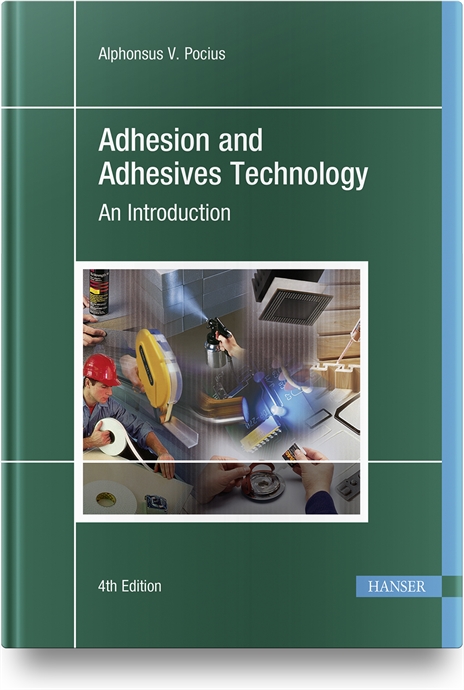Appliance Makers Keep It Together With PSAs
Pressure-sensitive adhesives are helping appliance assemblers enhance aesthetics, performance and reliability










Pressure-sensitive adhesives (PSAs) have become a game-changer for demanding assembly applications in a wide range of industrial applications. When it comes to large domestic appliances (LDAs), virtually any place a fastener can be used, a PSA (typically a tape) can perform the same task, offering performance equal to or better than that of a fastener and often with increased reliability and service life.
In every assembly application, selecting the right PSA depends on two primary considerations—the materials being bonded and the environment in which that bond will perform. Manufacturing and design engineers work together with converters and OEMs in the design process to make this determination.
Surface energy—a measurement of a surface that indicates how something will bond to it—affects an adhesive’s ability to bond to that substrate. Using the wrong PSA tape on the wrong surface will cause it to slide right off.
High surface energy (HSE) materials include most metals. But, painted or powder-coated metals—basic appliance components—are low surface energy (LSE) materials. Plastics such as acrylonitrile butadiene styrene and polycarbonate are HSE materials. Plastics such as polyethylene and polypropylene are LSE materials. These are more challenging to bond with PSAs.
Generally, the more textured a substrate, the more difficult it is to bond. An adhesive that is too thin or has low flow won’t bond to enough surface area. This type of substrate requires a tackier adhesive with a higher coat weight, providing more flow. Rubber- or acrylic-based adhesives modified with tackifiers bond well to LSE appliance surfaces.
Environment is the next issue, with temperature and humidity as key considerations. An adhesive that is a good choice for an oven may not be the best choice for a refrigerator or freezer. Rubber-based adhesives are generally a good choice for temperatures below 150 F; acrylic-based adhesives can generally resist temperatures around 350 F. High-performance acrylic (HPA) and silicone adhesives can be used for higher temperature ranges, which often require testing or existing application data to help support a proper recommendation.
Other environmental conditions—indoor-outdoor use; contact with solvents, chemicals or fuels; and direct or indirect exposure to ultraviolet radiation—must be considered. Generally, acrylic-based adhesives offer better adhesion performance to these conditions compared with rubber-based adhesives. However, if the specific application has an extremely high exposure to these conditions, technical support is recommended to provide a specific adhesive.
PSAs in Appliances
LDA manufacturers worldwide are taking advantage of advances in PSAs to enhance product aesthetics, performance and reliability.
While some PSAs may initially be more expensive than the fasteners they replace, brand owners can more than make up for the differential through enhanced manufacturing repeatability, precision and performance over the life of the product. The use of tapes also eliminates the need to drill holes or assemble using traditional methods.
Particularly in LDAs, such as washing machines and dryers, where noise and vibration are constant, tapes provide a more consistent, lighter weight joining method. Fasteners, over time, can break from the back-and-forth motion, leading to consumer dissatisfaction and costly repairs.
Today’s smart appliances are equipped with touch screens just like smart phones and tablet computers. These portable electronics aren’t held together with nuts and bolts, but PSAs. So, too, are the interactive screens on LDAs. PSAs deliver excellent shock absorption and impact resistance properties for these screens.
Another factor—lightweighting—is a major concern in many industries. Adhesive tapes can replace perhaps 30 to 60 screws, washers and nuts on an appliance, which can help reduce weight. This may measure in ounces, not pounds, on each appliance. Lighter weight, however, translates to savings when a manufacturer is shipping thousands of refrigerators, dryers or washers every year.
Specific Applications
PSAs for appliances—many of which must be UL-certified—cover a wide variety of applications. For a PSA to be viable for appliance assembly, manufacturers need to be assured of a reliable bond in a manner that is easier to apply than traditional joining methods.
Aesthetic applications. Since brand consistency and presentation are key to a product’s branding, nearly every appliance carries a brand badge or emblem, and many have decorative trim or bumper rails for product protection. Durable acrylic foam bonding (AFB) tapes are an affordable option for these applications, providing excellent tack, adhesion and cohesion performance. These also add shock dissipation for appliances where doors are constantly opening and slamming shut, allowing the component to withstand such shocks over the life of the appliance. AFB tapes are also excellent choices for joining metal frames to glass cooktops, providing reliable adhesion while adding thickness to absorb the shocks that may be created by pots and pans being placed on the surface.
Critical joining applications. During refrigerator and freezer assembly, it’s critical to prevent movement of components while foam insulation is pumped into wall and door cavities. For this application, high-performance acrylic (HPA) tape provides long-term adhesion with high temperature performance and excellent environmental resistance. It offers high holding power and reliable performance on high-, medium- and low-energy substrates, including a variety of engineered plastics. Foil-based tapes are also an excellent option for attaching refrigerator coils, helping to prevent the coil from moving over the product’s life span.
Noise and vibration damping. Appliance assemblers are increasingly using thin-gauge sheet metal in washers, dryers and dishwashers to cut costs and save weight. These thin materials can increase noise and vibration and decrease the product’s working life due to metal fatigue over time. Aluminum-foil based acrylic tapes can reduce noise, vibration and stress fatigue by damping vibrations. They also provide excellent resistance to heat and humidity. This type of application typically requires a PSA that is customized to meet the specific damping, heat and humidity requirements of the application. There’s no one-size-fits-all product.
Control panels. Depending on the application, flock tapes or HPA tapes allow assemblers to securely attach digital control panels to appliances, providing a tight seal that protects against varying temperature and humidity. To provide the proper PSA, a full understanding of the substrates being joined is key.
Start at the Design Phase
While it’s certainly possible to use PSAs in place of fasteners in existing appliance designs, the best time to develop bonding applications is early in the design phase, well before production begins. Design engineers can bring to bear the expertise of the tape converter and tape manufacturer to prove out bonding applications. Early consultation with these experts is the key to PSA assembly success.
For more information on pressure-sensitive adhesives, call 866-462-8379 or visit https://tapes.averydennison.com.
Looking for a reprint of this article?
From high-res PDFs to custom plaques, order your copy today!










